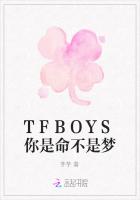Lityerses not only put strangers to death; he was himself slain, and apparently in the same way as he had slain others, namely, by being wrapt in a corn-sheaf, beheaded, and cast into the river; and it is implied that this happened to Lityerses on his own land. Similarly in modern harvest-customs the pretence of killing appears to be carried out quite as often on the person of the master (farmer or squire) as on that of strangers. Now when we remember that Lityerses was said to have been a son of the King of Phrygia, and that in one account he is himself called a king, and when we combine with this the tradition that he was put to death, apparently as a representative of the corn-spirit, we are led to conjecture that we have here another trace of the custom of annually slaying one of those divine or priestly kings who are known to have held ghostly sway in many parts of Western Asia and particularly in Phrygia. The custom appears, as we have seen, to have been so far modified in places that the king's son was slain in the king's stead. Of the custom thus modified the story of Lityerses would be, in one version at least, a reminiscence.
Turning now to the relation of the Phrygian Lityerses to the Phrygian Attis, it may be remembered that at Pessinusthe seat of a priestly kingshipthe high-priest appears to have been annually slain in the character of Attis, a god of vegetation, and that Attis was described by an ancient authority as a reaped ear of corn. Thus Attis, as an embodiment of the corn-spirit, annually slain in the person of his representative, might be thought to be ultimately identical with Lityerses, the latter being simply the rustic prototype out of which the state religion of Attis was developed. It may have been so; but, on the other hand, the analogy of European folk-custom warns us that amongst the same people two distinct deities of vegetation may have their separate personal representatives, both of whom are slain in the character of gods at different times of the year. For in Europe, as we have seen, it appears that one man was commonly slain in the character of the tree-spirit in spring, and another in the character of the corn-spirit in autumn. It may have been so in Phrygia also. Attis was especially a tree-god, and his connexion with corn may have been only such an extension of the power of a tree-spirit as is indicated in customs like the Harvest-May. Again, the representative of Attis appears to have been slain in spring; whereas Lityerses must have been slain in summer or autumn, according to the time of the harvest in Phrygia. On the whole, then, while we are not justified in regarding Lityerses as the prototype of Attis, the two may be regarded as parallel products of the same religious idea, and may have stood to each other as in Europe the Old Man of harvest stands to the Wild Man, the Leaf Man, and so forth, of spring. Both were spirits or deities of vegetation, and the personal representatives of both were annually slain. But whereas the Attis worship became elevated into the dignity of a state religion and spread to Italy, the rites of Lityerses seem never to have passed the limits of their native Phrygia, and always retained their character of rustic ceremonies performed by peasants on the harvest-field. At most a few villages may have clubbed together, as amongst the Khonds, to procure a human victim to be slain as representative of the corn-spirit for their common benefit. Such victims may have been drawn from the families of priestly kings or kinglets, which would account for the legendary character of Lityerses as the son of a Phrygian king or as himself a king. When villages did not so club together, each village or farm may have procured its own representative of the corn-spirit by dooming to death either a passing stranger or the harvester who cut, bound, or threshed the last sheaf. Perhaps in the olden time the practice of head-hunting as a means of promoting the growth of the corn may have been as common among the rude inhabitants of Europe and Western Asia as it still is, or was till lately, among the primitive agricultural tribes of Assam, Burma, the Philippine Islands, and the Indian Archipelago. It is hardly necessary to add that in Phrygia, as in Europe, the old barbarous custom of killing a man on the harvest-field or the threshing-floor had doubtless passed into a mere pretence long before the classical era, and was probably regarded by the reapers and threshers themselves as no more than a rough jest which the license of a harvest-home permitted them to play off on a passing stranger, a comrade, or even on their master himself.
I have dwelt on the Lityerses song at length because it affords so many points of comparison with European and savage folk-custom. The other harvest songs of Western Asia and Egypt, to which attention has been called above, may now be dismissed much more briefly. The similarity of the Bithynian Bormus to the Phrygian Lityerses helps to bear out the interpretation which has been given of the latter. Bormus, whose death or rather disappearance was annually mourned by the reapers in a plaintive song, was, like Lityerses, a king's son or at least the son of a wealthy and distinguished man. The reapers whom he watched were at work on his own fields, and he disappeared in going to fetch water for them; according to one version of the story he was carried off by the nymphs, doubtless the nymphs of the spring or pool or river whither he went to draw water. Viewed in the light of the Lityerses story and of European folk-custom, this disappearance of Bormus may be a reminiscence of the custom of binding the farmer himself in a corn-sheaf and throwing him into the water.
The mournful strain which the reapers sang was probably a lamentation over the death of the corn-spirit, slain either in the cut corn or in the person of a human representative; and the call which they addressed to him may have been a prayer that he might return in fresh vigour next year.















